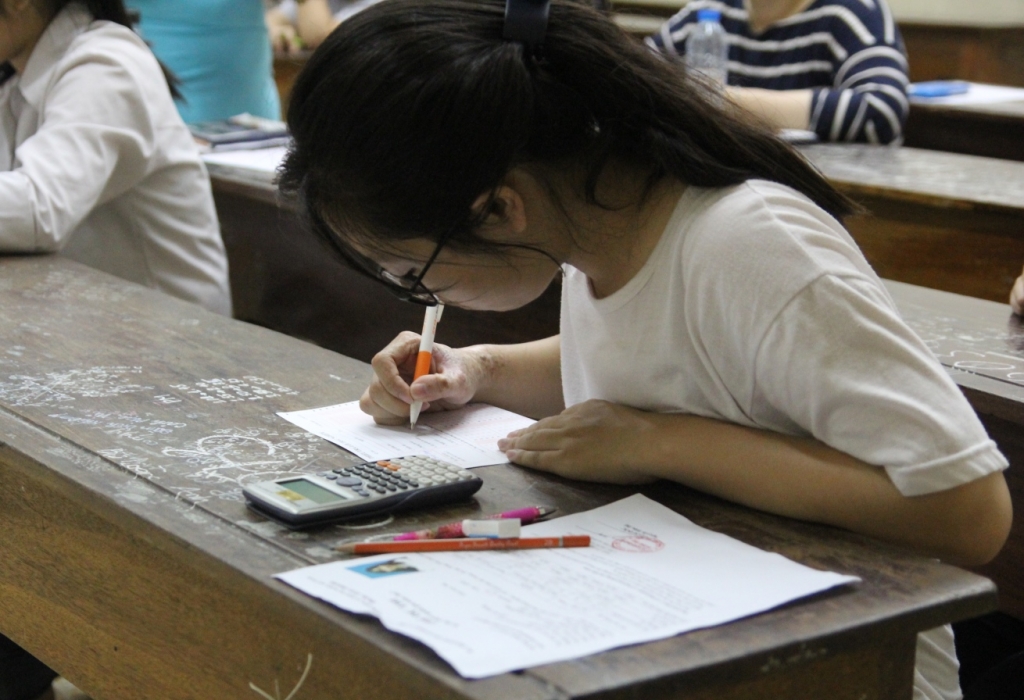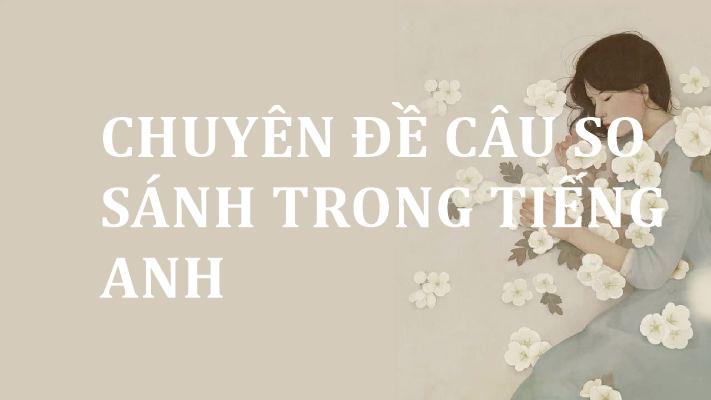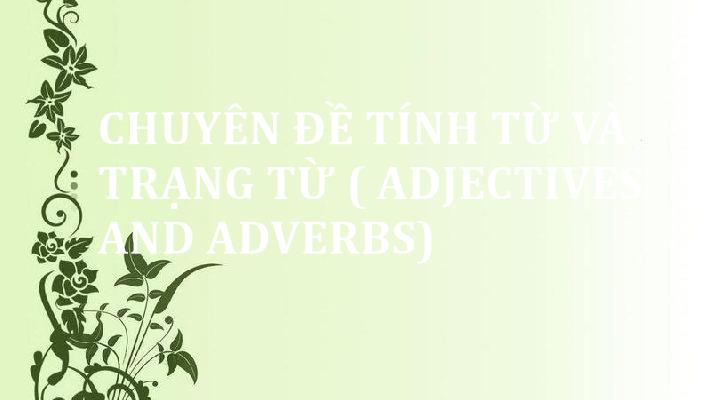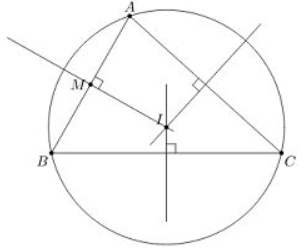PHẦN 1. LÝ THUYẾT
I. The past simple tense (thì quá khứ đơn)
1. Cách dùng:
Diễn tả một hành động, sự việc đã xảy ra và kết thúc tại một thời điểm xác định trong quá khứ.
Ex: My parents went to Ho Chi Minh city last night.
The boys came to see me yesterday.
Diễn tả hành động, sự việc xảy ra suốt một khoảng thời gian trong quá khứ bây giờ chấm dứt.
Ex: He served in the Army from 1978 to 1988.
Her father worked in a factory for 10 years.
Diễn tả hành động có tính thói quen trong quá khứ, bây giờ không còn nữa.
Ex: When I was young, I went to the cinema every week.
Each week we trekked to the big house.
Diễn tả một loạt các hành động nối tiếp nhau trong quá khứ
Ex: He walked into the room and turned on the light.
I got up, switched off the radio and sat down again.
2. Dấu hiệu nhận biết thì quá khứ đơn
Thường có các trạng từ chỉ thời gian đi liền với thì:
- yesterday, yesterday morning/ afternoon/ evening
- last night/ week/ month/ year
- last + thứ trong tuần: Monday, Tuesday ... ; last Monday ....
- last + mùa trong năm: summer, fall ... ; last summer ...
- in + năm đã qua: 1988, 2008 .....; in 2008 ...
- khoảng thời gian + ago (a week ago, two days ago ...)
- the other day (ngày nọ)
3. Phân loại:
Thì quá khứ đơn được chia làm ba thể:
a. Affirmative form (Thể khẳng định)
* Đối với động từ To be: S + WERE/ WAS ...
Nếu chủ ngữ là: I/ he/ she/ it và danh từ số ít: was
Nếu chủ ngữ là: we/ they/ you và danh từ số nhiều: were
PHẦN 2. BÀI TẬP
Ex: I was at home last night.
My parents were at school yesterday.
* Đối với những động từ thường có quy tắc, thường thêm ed
Ex: clean → cleaned
Nếu động từ tận cùng là e, ta chỉ thêm d mà thôi.
Ex: live → lived
Nếu động từ tận cùng là một phụ âm + y, đổi y thành i + ed
Ex: study → studied
Nếu động từ có một âm tiết mà tận cùng là một nguyên âm + phụ âm (ngoại trừ phụ âm w, y) ta gấp đôi phụ âm rồi thêm ed
Ex: stop → stopped
* Đối với những động từ bất quy tắc: học thuộc lòng theo bảng động từ bất quy tắc và sử dụng đúng hình thức quá khứ của nó ở cột hai.
Ex: My father bought a new car yesterday.
b. Negative form (Thể phủ định)
* Đối với động từ To be: S + WERE/ WAS + NOT ...
Ex: She was not at home yesterday.
* Đối với tất cả động từ thường và động từ bất quy tắc, ta dùng: S + DID NOT + V(inf) ...
Ex: I did not see her in school yesterday afternoon.
c. Interrogative form (Thể nghi vấn)
* Đối với động từ To be: WAS/ WERE + S ....?
Ex: Were you at club last night?
Với câu hỏi có từ để hỏi: Where, When, Why, ....
WHERE/ WHEN/ WHY + WAS/ WERE + S ....?
Ex: When were you there?
* Đối với động từ thường: DID + S + V(infinitive)....?
Ex: Did you go to the cinema last night?
Với câu hỏi có từ để hỏi:
WHEN/ WHERE/ WHY + DID + S + V(inf) ...?
Ex: Where did you go last night?
Cách phát âm đuôi ed.
Những động từ có quy tắc tận cùng là âm /t/ và /d/, khi thêm đuôi ed ta đọc là /id/
need /ni:d/ --> needed /ni:did/
Những động từ có quy tắc tận cùng là âm /k/, /p/, /f/, /s/, ch, sh khi thêm đuôi ed, ta đọc là /t/
laugh /la:f/ --> laughed /la:ft/
Những động từ có quy tắc kết thúc là những âm còn lại, khi thêm đuôi ed, ta đọc là /d/
played /plei/--> played /pleid/
II. The simple past tense in wish - clause (Thì quá khứ đơn trong mệnh đề Wish)
Câu mong ước được dùng khi người nói mong ước điều trái ngược với thực tế
1. Mong ước ở hiện tại (mong thay đổi việc gì ở hiện tại):
S(1) + WISH/ WISHES + S(2) + V (past simple) ....
Lưu ý: Động từ tobe chỉ dùng dạng were
Ex: I don't have enough time to finish my exam.
--> I wish I had enough time to finish my exam.
2. Mong ước trong tương lai (mong điều gì sẽ xảy ra hoặc muốn ai đó làm việc gì trong tương lai):
S(1) + WISH/ WISHES + S(2) + WOULD/ COULD + V ....
Ex: She will not tell me.
--> I wish she would tell me.
3. Mong ước trong quá khứ (thể hiện sự hối tiếc điều gì đã xảy ra trong quá khứ):
S(1) + WISH/ WISHES + S(2) + HAD + P2 ...
Ex: I wish I hadn't eaten so much ice cream. (= but I ate so much ice cream)
I. Match the word in column A to its definition in column B
|
A 1. pen pal 2. mosque 3. climate
4. religion 5. currency 6. compulsory 7. tuition 8. mausoleum |
B a. the system of money used in a country b. a large impressive tomb c. someone. who you regularly write friendly letters to but have never met d. money that you pay to take classes e. a building in which Muslims worship f. believing in a god g. the regular pattern of weather conditions h. required by the rule |
II. Complete the sentences with the verbs in the box
|
corresponded Impress prayed comprises divided depends separated enloying |
l. The living accommodation………………… three bedrooms, a kitchen, and a bathroom.
2. We've …………………with each other for It) years. but l've never actually met, him.
3. The children were…………………into three groups.
4. The priest …………………for the dying man.
5. The sights of the city never fail to…………………foreign tourists.
6. She was …………………from her mother when she was three.
7. Claire …………………her skiing holiday.
8. Their future…………………on how well they do in school.
III. Use the correct form of the word given to complete each sentence
I. First …………………can be misleading. (impress)
2. I enjoy working there. everyone is so………………… (friend)
3. The. editor welcomes…………………from readers on any subject. (correspond)
4. Some people have no…………………beliefs. (religion)
5. By the age of eighteen he was completely………………… of his parents. (depend)
6. English and French are …………………languages. (office)
7. America's …………………production fell for the fourth successive month. (industry)
8. How can we make the subject more………………… to young people? (interest)
9. Many parents opposed the…………………of the classes into different sets. (divide)
10. Mathematics is an…………………subject at school. (compelete)
IV. Complete the conversation. Put in the past simple tense.
Claire : (l) Did you have (you/have) a nice trip to Vietnam?
Maryam: Yes. thanks. It was a wonderful trip?
Claire : What sights(2)………………… (you/see)?
Maryam: Well, my friend Lan(3)………………… (take) me to a lot of beautiful sights in Hanoi We also (4)………………… (visit) some historical places such as Hoan Kiem Lake, Ho Chi Minh's Mausoleum, the History Museum, Van Mieu, and so on.
Claire : (5)………………… (you/ go) to a mosque in Hanoi?
Maryam: Yes. I (6)………………… (come) to pray in the mosque on Hang Luoc Street. And on the weekend. We (7) ………………… (go) to see a show.
Claire : What show (8)………………… (you/ go) to?
Maryam: Oh, a musical. I forget the name. I (9) ………………… (not/like) it.
Claire : 0h.'dear. And (10) ………………… (Lan/enjoy) it?
Maryam: No, not really. But we (11) ………………… (enjoy) the weekend.
V. Complete the sentences. Use one of these tones: the present simple, the present progressive, the simple post, or the past progressive
1. You can turn of the television. I ………………… (not/watch) it.
2. When I………………… (open) the car door this morning, a cat…………………(jump) out.
3. Bob………………… (hurt) his finger when he ………………… (cook) his dinner.
4. I………………… (live) in London for ten years while I………………… (be) a child.
5. Listen! Somebody………………… ( play) the piano. ~lt's Jenny. She………………… (play) the piano every evening.
6. Louise usually………………… (phone) me on Fridays, but she………………… (not/ phone) yesterday.
7. We ………………… (go) to the cinema last night, but I………………… (not/enjoy) the film much.
8. When we………………… (see) Mark, we………………… (stop) the car.
9. When I last………………… (see) Allan. he………………… (try) to find a job in London.
10. My brother………………… (try) to find a job at the moment. It’s very difficult.
1l. This time last year I…………………(live) in Brazil. And I………………… (meet) my husband while I…………………(work) there.
12. What………………… (you! do) at 10 o'clock yesterday? ………………… (you/study)?
13. They still………………… (live) in the small house they………………… (buy) 50 years ago.
14. Last night while I………………… (do) my homework. my brothers…………………(play) computer games.
15. What…………………(you/do) last night? ~ Well. as soon as I…………………(finish) my work, I…………………(go) to bed.
VI. Look at the information about Jane below. Make sentences with used to and do not use to
.png)
1. Jane used to be a hotel receptionist, but now she works in a bookshop.
2. ……………………………………………………………………
3. ……………………………………………………………………
4. ……………………………………………………………………
5. ……………………………………………………………………
6. ……………………………………………………………………
7. ……………………………………………………………………
8. ……………………………………………………………………
VII. Write sentences beginning I wish...
1. I dont know many people in the town.
I wish I knew many people in the town.
2. It would be nice to be able to fly a plane.
……………………………………………………………………
3. It’s a shame that I can not stop smoking.
……………………………………………………………………
4. Ann isn 't here and I need to see her.
……………………………………………………………………
5. I do not like being so short.
……………………………………………………………………
6. Unfortunately, I have to work tomorrow.
……………………………………………………………………
7. I am not lying on a beach in Hawaii.
……………………………………………………………………
8. Im sorry I can not go to the party.
……………………………………………………………………
9. I’d like to get access to the Internet but I don’t have a computer.
……………………………………………………………………
10. It's a pity the weether isn’t better today.
……………………………………………………………………
VIII. Complete these sentences with the correct form of the verb in brackets
1. Jane wishes she…………………(know) how to dance.
2. I wish my parents…………………(not/work) on Saturdays.
3. Have you ever wish you………………… (can fly) as a bird?
4. We all wish we…………………(have) more money, do not we?
5. I wish i………………… (live) in a big city. It is so boring in the country.
6. The boys wish they………………… (be) tall enough to play basketball.
7. I wish the teacher………………… (not/be) going to give an exam tomorrow.
8. Mai knows a little English, so she wish she…………………(can speak) it fluently.
9. I wish the sun…………………(shine) right now so that we could go swimming.
10. I wish I………………… (wear) a coat now, It is so cold today.
IX. Fill in each blank with the correct preposition
1. How long is she planning to stay………………………you?
2. We haven't seen Jane………………………a while.
3. I walked ………………………several hotels ………………………my way………………………the gas station.
4. The young birds depend………………………their parents for food several weeks.
5. This job is a lot different ………………………what I'm used to.
6. Most students are interested………………………sports.
7. The teacher divided the class………………………five groups.
8. His breakfast consists ……………………… dry bread and a cup of tea.
9. Their yard is separated………………………the factory………………………a tall fence.
10. ………………………Friday, Maryain wanted to visit the mosque ………………………Hang Luoc Street.
X. Read the passage carefully, then decide whether the following statements are true (T) or false (F)
Canada is the world’s second largest country. Lt’s population is not very large, however. About 25 million people live in Canada - less than half the population of Britain or France and oly one thirtieth of the population of India. Canada is in North America and its capital is Ottawa. It is a rich c.ountry with a lot of natural resources. In southern Canada the land is very good for farming and Canada exports a lot of wheat. In the north there are magnificent forests. In the west there are some very high mountains called the Rockies. Canada also has many minerals such as petroleum, gas copper and zinc. Canada was first settled by French pioneers. In the eighteenth century there were wars between Britain and French, and Canada came under British rule. Since 1931 Canada has been an independent member of the British Commonwealth. English and French are both official language in Canada.
1. Canada is a densely populated country.
2. The French were the first settlers in Canada.
3. Both French and English are spoken in Canada.
4. Canada is one of the British colonies.
XI. Complete the second sentence so that it has a similar mailing to the first
1. My sister has played the piano for five years.
My sister started……………………………………………………………..
2. Our dog bit the postman.
The postman……………………………………………………………..
3. Im sorry that I dont know what to do about the pioblem
I wish……………………………………………………………..
4. Mary wrote her composition hours and hours ago.
It’s hours……………………………………………………………..
5. When I was a child we lived in Bristol
We used……………………………………………………………..
6. My friend won the race.
My friend was……………………………………………………………..
7. I would like you to help me move this table.
Do you mind……………………………………………………………..
8. She’s sorry she can not play the piano
She wishes……………………………………………………………..
9. I don’t normally have coffee for breakfast.
I am not used……………………………………………………………..
10. It was breakfast-time when Susan rang.
I was……………………………………………………………..
HƯỚNG DẪN GIẢI BÀI TẬP
I.
1.c 2e 3g. 4f 5a 6h 7d 8b
II.
1. comprises
2. corresponded
3. divided
4. prayed
5. impress
6. separated
7. enjoying
8. depends
III
1. impression
2. friendly
3. correspondence
4. religion
5. independent
6. offical
7. industrial
8. interesting
9. division
10. compulsory
IV
2. did you see
3. took
4. visited
5. did you go
6. came
7. went
8. did you go
9. did not like
10. did Lan enjoy
V
1. am not watching
2. opened – jumped
3. hurt – was cooking
4. lived – was
5. is playing – plays
6. phones – did not phone
7. went – did nog enjoy
8. saw – stopped
9. saw – was trying
10. is trying
11. was living – met – was working
12. were you doing – were you stydying
13. live – bought
14. was doing – were playing
15. did you do – finished – went
VI
2. Jane used to have a lot of friends but she does not know many people now.
3. She did not use to read newpapers but she reads newpapers every day now.
4. She used to travel a lot but she does not go away much now.
5. She used to play volleyball now she plays badminton.
6. She did not use to love cooking but now she likes to cook Chinese dishes.
7. She used to wear make-up but now she wears no make-up at all.
8. She did not use to drink tea but she likes it now.
VII
2. I wish I could fly a plane
3. I wish I could stop smoking
4. I wish Ann was/were here.
5. I wish I was/were taller.
6. I wish I did not have to work tomorrow.
7. I wish I was/were lying on a beach in Hawaii.
8. I wish I could go to the party
9. I wish I had a computer.
10. I wish the weather was/were better today.
VIII.
1. knew
2. did not work
3. could fly
4. had
5. lived
6. were
7. was not/ were not
8. could speak
9. was/were shining
10. was/were wearing
IX
1. with
2. for
3. past – on – to
4. on – in
5. from
6. in
7. into
8. of
9. from – by
10. on – on
X
1. F 2. T 3.T 4. F
XI
1. My sister started to play/playing the piano five years ago.
2. The postman was bitten by our dog.
3. I wish I knew what to do about the problem
4. It is hours since wrote her composition.
5. We used to live in Bristol.
6. My friend was the winner of the race.
7. Do you mind helping me move this table?
8. She wishes she could play the piano.
9. I am not used to having coffee for breakfast.
10. I was having/eating (my) breakfast when Susan rang.
CHÚC CÁC BẠN HỌC BÀI TỐT !
NHỚ SHARE VÀ ỦNG HỘ CHO LOGA NHÉ







